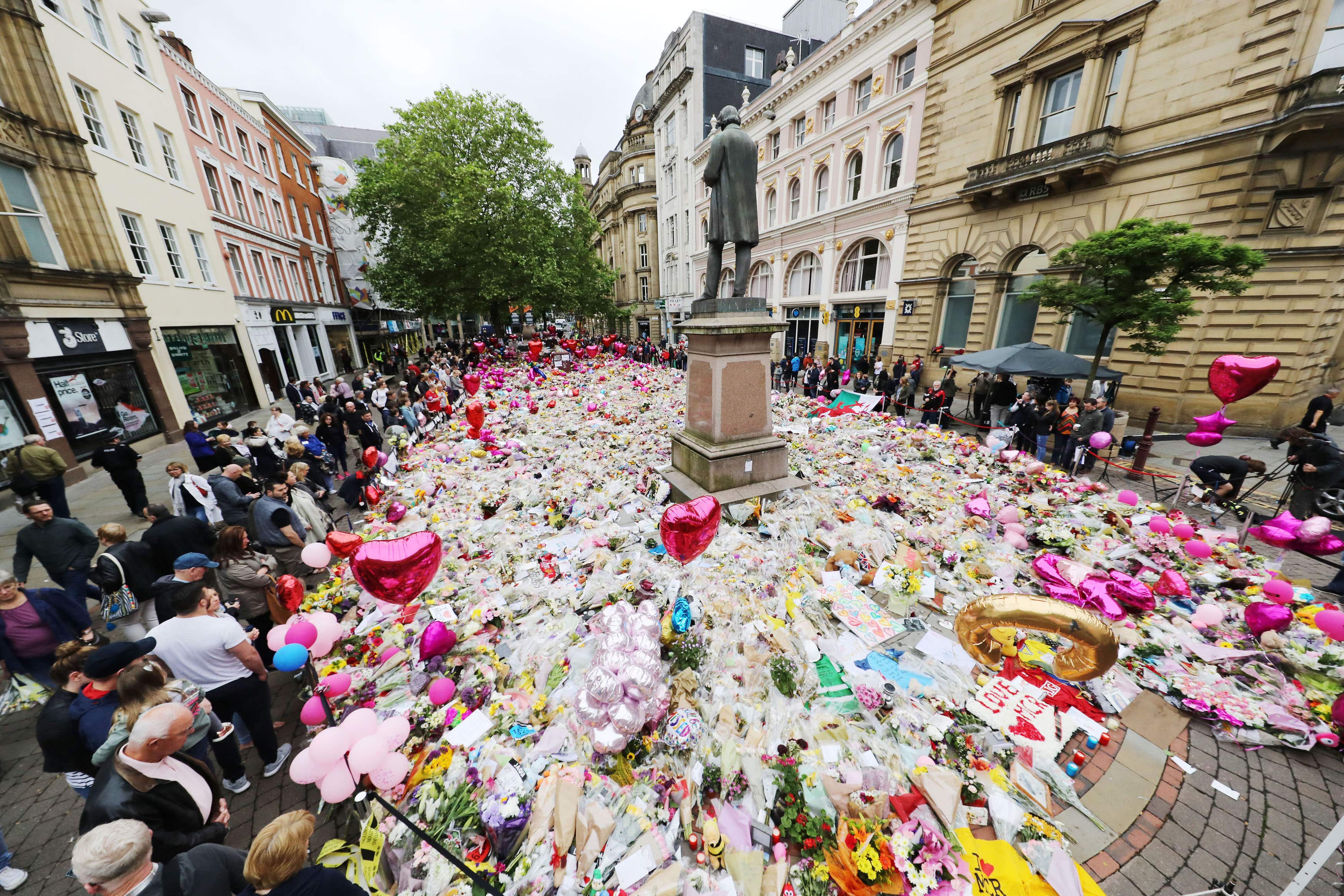Hundreds of Manchester Arena bombing survivors take legal action against MI5
Legal teams representing injured survivors of the bombing said they had collectively submitted a group claim to the Investigatory Powers Tribunal.

Your support helps us to tell the story
From reproductive rights to climate change to Big Tech, The Independent is on the ground when the story is developing. Whether it's investigating the financials of Elon Musk's pro-Trump PAC or producing our latest documentary, 'The A Word', which shines a light on the American women fighting for reproductive rights, we know how important it is to parse out the facts from the messaging.
At such a critical moment in US history, we need reporters on the ground. Your donation allows us to keep sending journalists to speak to both sides of the story.
The Independent is trusted by Americans across the entire political spectrum. And unlike many other quality news outlets, we choose not to lock Americans out of our reporting and analysis with paywalls. We believe quality journalism should be available to everyone, paid for by those who can afford it.
Your support makes all the difference.More than 250 survivors of the Manchester Arena bombing are taking legal action against MI5, lawyers representing them have confirmed.
Legal teams representing injured survivors of the bombing in 2017 that killed 22 people said they had collectively submitted a group claim to the Investigatory Powers Tribunal.
Last year, MI5 director-general Ken McCallum expressed “deep regret” that intelligence was not gathered which may have stopped suicide bomber Salman Abedi in his tracks, as he said he was “profoundly sorry” that MI5 was unable to prevent the atrocity.
An inquiry found the bombing might have been prevented if MI5 had acted on intelligence received in the months before the attack when two pieces of information about Abedi were assessed at the time by the security service to not relate to terrorism.
But inquiry chairman Sir John Saunders said, having heard from MI5 witnesses at secret hearings, he considered that did not present an “accurate picture”.
In the wake of the findings, Mr McCallum made a rare public statement in which he apologised for the failings identified and insisted improvements had been made.
To all those whose lives were forever changed on that awful night: I am so sorry that MI5 did not prevent the attack at the Manchester Arena
Describing the attack as a “terrible tragedy”, Mr McCallum said his thoughts were with the “families and friends of those killed, and with all those whose lives were changed by this appalling act of terrorism”.
“MI5 exists to stop atrocities. To all those whose lives were forever changed on that awful night: I am so sorry that MI5 did not prevent the attack at the Manchester Arena,” he added.
A statement, seen by the PA news agency, made on behalf of Hudgell Solicitors, Slater & Gordon and Broudie Jackson Canter said: “Legal teams representing injured survivors of the Manchester Arena bombing in 2017 can confirm that they have collectively submitted a group claim on behalf of more than 250 clients to the Investigatory Powers Tribunal.”
The three lead firms representing the injured survivors’ group added: “As it is an ongoing legal matter, we are unable to provide any further details, or comment further, at this stage.”
MI5 said it would not comment on ongoing legal proceedings.
The Investigatory Powers Tribunal is an independent court, established under Section 65 of the Regulation of Investigatory Powers Act 2000 (RIPA).
The tribunal considers complaints under RIPA and claims under the Human Rights Act 1998.
It considers allegations of unlawful intrusion by public bodies, including the UK intelligence services, the police and local authorities, and investigates alleged conduct by or on behalf of the UK intelligence services whether or not it involves investigatory powers.